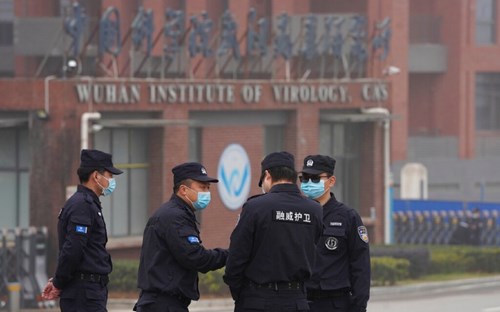The health arm of the United Nations closed its annual meeting, known as the World Health Assembly, in Geneva on Saturday. It was unable to finalize, as it hoped, the pandemic agreement at this meeting but it was successful in amending the legally-binding International Health Regulations, or IHR.
The amendments include a definition of “pandemic emergency” and the addition of an administrative layer of WHO members – called the National IHR Authorities – who determine when emergency conditions exist.
The pandemic agreement remains a key. Without it, there’s nothing to enforce.
In a weekend news release, the WHO said the 194-member assembly agreed to a "package of critical amendments" related to the IHR and also made "concrete commitments to completing negotiations on a global pandemic agreement within a year, at the latest."
Opposition grows to pandemic agreement
Critics are calling the proposed agreement a power grab that far exceeds cooperation of countries during a health emergency.
Previous drafts have included language addressing abortion and climate change.
“This is a widespread call among many, many academic journals, thousands, that are calling for climate change to be defined as a pandemic health threat that would fall under this new guidance,” Dr. Robert Malone, the chief medical and regulatory officer for The United Project, told Washington Watch last month.

The consensus on a definition for the purpose of the IHR amendments represents a victory for the WHO. It had been a contentious issue, Travis Weber, the Family Research Council’s vice president for policy and government Affairs, said on Washington Watch last Friday.
There’s still a lot to be worked out in terms of a pandemic preparedness agreement like “who’s going to fund this sharing of resources and technology,” Weber told show host Jody Hice.
Joe Biden’s administration embraces the WHO plan but many on Capitol Hill do not. Forty-nine U.S. senators recently wrote to Biden telling him they find it “unacceptable” to give away U.S. decision-making power to the WHO for future health emergencies.
"The WHO's failure during the COVID-19 pandemic was as total as it was predictable and did lasting harm to our country," says the letter.
 Rep. Tom Tiffany (R-Wisconsin) introduced legislation in the House that would treat the agreement like a treaty and require a two-thirds super majority vote in the Senate for ratification.
Rep. Tom Tiffany (R-Wisconsin) introduced legislation in the House that would treat the agreement like a treaty and require a two-thirds super majority vote in the Senate for ratification.
In addition, Republican governors from 24 sates have also written Biden. They express concerns the agreement would erode state sovereignty by allow the WHO to dictate responses to public health emergencies, stripping elected officials of their role in setting public health policies and compelling citizens to comply with WHO directives.
Weber: Pay attention to this
“It’s important for those of our followers, Christians in the United States and elsewhere around the world, to understand what's happening in places like this WHO meeting and the other global meetings that are happening. We have to understand because we need to bring the perspective that God has His heart, His thoughts and His mind in these situations and conversations,” Weber said.







